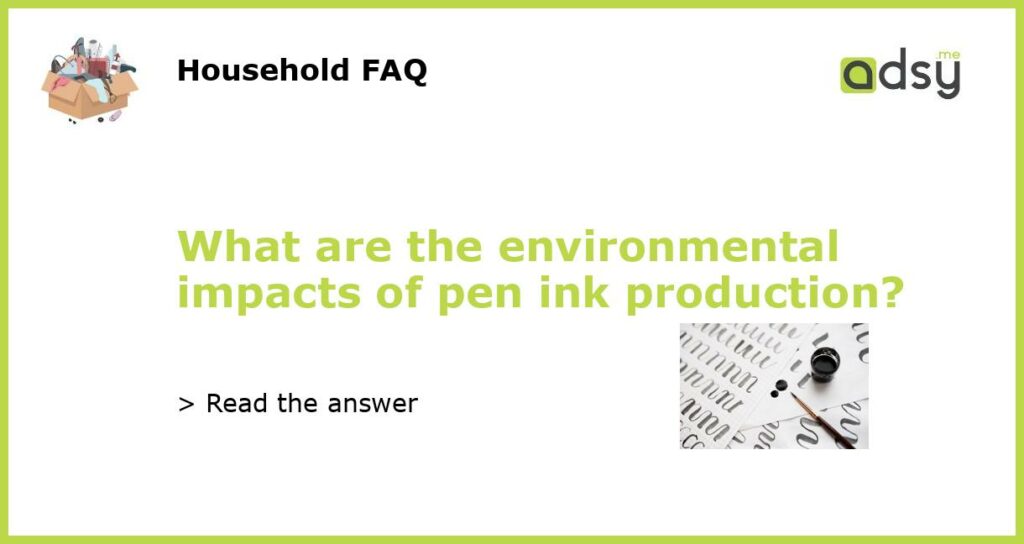The environmental impacts of pen ink production
Pen ink has been an essential tool for writing and drawing for centuries. However, while it is a ubiquitous tool, have we ever stopped to consider the environmental impacts of producing it? Pen ink production has a variety of environmental impacts, and in this article, we will explore them.
The carbon footprint of pen ink production
The production of pen ink requires a significant amount of energy, and as a result, it has a carbon footprint. The production process involves extracting raw materials, processing them, and then transporting the finished product. This process results in greenhouse gas emissions that contribute to climate change.
Furthermore, most pen inks are petroleum-based, and the production of petrochemicals is energy-intensive and polluting. As a result, using eco-friendly pen inks that do not have petroleum-based components may be a better environmental option.
The disposal of pen ink cartridges
The disposal of pen ink cartridges is another environmental issue to consider. Most pens use disposable cartridges, and when the ink runs out, the cartridge is discarded. These cartridges often end up in landfills or oceans.
While some companies offer ink cartridge recycling programs, many do not. Therefore, it is essential to choose eco-friendly pens that are refillable with ink to reduce the amount of waste generated by pen ink cartridges.
The impact of ink production on water resources
Ink production also has significant impacts on water resources. The production process requires vast amounts of water, and the disposal of waste ink can pollute water sources. Toxic chemicals in ink can contaminate water resources and harm aquatic life.
Moreover, many pen manufacturers do not disclose information on the chemicals used in their ink production, making it hard for consumers to make informed purchasing decisions. As a result, individuals should opt for eco-friendly pen inks that are safe for water resources and aquatic life.
The need for sustainable and eco-friendly pen ink production
Overall, the environmental impacts of pen ink production can be reduced with sustainable practices. Consumers can reduce their ecological footprint by choosing pens that are environmentally friendly and have refillable cartridges. Similarly, ink manufacturers can adopt eco-friendly practices such as developing non-toxic and water-based ink formulations, investing in renewable energy, and adopting responsible waste disposal practices.
Ultimately, by adopting sustainable practices and choosing environmentally friendly products, we can reduce the environmental impacts of pen ink production and contribute towards creating a more sustainable world.






